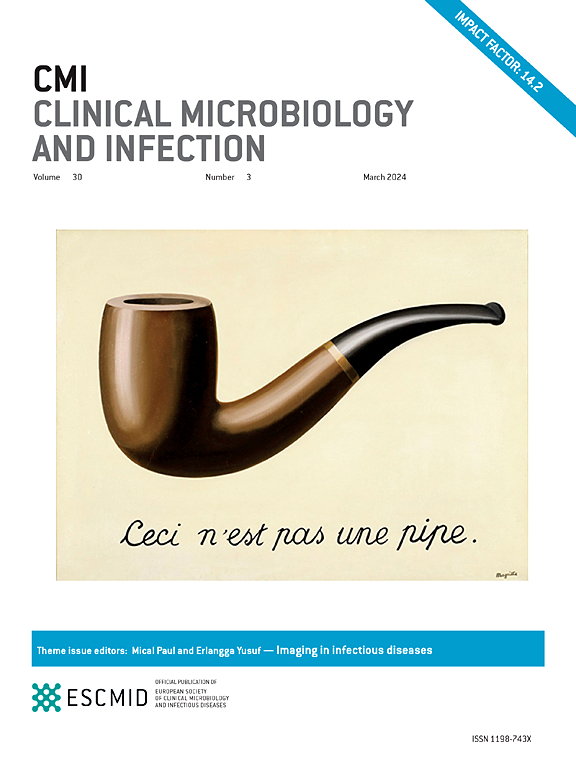Infectious complications in the paediatric immunocompromised host: a narrative review
IF 10.9
1区 医学
Q1 INFECTIOUS DISEASES
引用次数: 0
Abstract
Background
Infections are a major cause of morbidity in children with primary or secondary immunodeficiency, and have a negative impact on overall outcome.
Objectives
This narrative review presents select paediatric-specific aspects regarding the clinical impact, diagnosis, management, and follow-up of infectious complications in patients with primary and secondary immunodeficiencies.
Sources
PubMed until January 2024 and searched references in identified articles including the search terms: infection, immunodeficiency or cancer, diagnostics, antimicrobial agents, bacteria or fungus or virus, and follow-up.
Content
Major advances have been made in the early detection and management of patients with primary immunodeficiency, and multiple analyses report in children with cancer on risk groups and periods of risk for infectious complications. Although many diagnostic tools are comparable between children and adults, specific considerations have to be applied, such as minimizing the use of radiation. Antimicrobial drug development remains a major challenge in the paediatric setting, which includes the establishment of appropriate dosing and paediatric approval. Last, long-term follow-up and the impact of late effects are extremely important to be considered in the management of immunocompromised paediatric patients.
Implications
Although infectious disease supportive care of immunocompromised children and adolescents has considerably improved over the last three decades, close international collaboration is needed to target the specific challenges in this special population.
儿科免疫力低下人群的感染并发症:综述。
背景:感染是原发性或继发性免疫缺陷儿童发病的主要原因,并对总体治疗效果产生负面影响:这篇叙述性综述介绍了原发性和继发性免疫缺陷患者感染并发症的临床影响、诊断、管理和随访等儿科特定方面:资料来源:PubMed 至 2024 年 1 月,在已确定的文章中检索参考文献,检索词包括:感染、免疫缺陷或癌症、诊断、抗菌药物、细菌或真菌或病毒、随访:在原发性免疫缺陷患者的早期检测和管理方面取得了重大进展,多项分析报告显示,癌症患儿是感染并发症的高危人群和高危时期。尽管许多诊断工具在儿童和成人之间具有可比性,但仍需考虑具体因素,如尽量减少辐射的使用。抗菌药物的开发仍然是儿科领域的一大挑战,其中包括确定适当的剂量和儿科审批。最后,在管理免疫力低下的儿科患者时,长期随访和后期效应的影响也是极为重要的考虑因素:启示:尽管在过去的三十年里,针对免疫力低下的儿童和青少年的传染病支持性治疗已经有了很大的改善,但仍需要密切的国际合作来应对这一特殊人群所面临的特殊挑战。
本文章由计算机程序翻译,如有差异,请以英文原文为准。
求助全文
约1分钟内获得全文
求助全文
来源期刊
CiteScore
25.30
自引率
2.10%
发文量
441
审稿时长
2-4 weeks
期刊介绍:
Clinical Microbiology and Infection (CMI) is a monthly journal published by the European Society of Clinical Microbiology and Infectious Diseases. It focuses on peer-reviewed papers covering basic and applied research in microbiology, infectious diseases, virology, parasitology, immunology, and epidemiology as they relate to therapy and diagnostics.

 求助内容:
求助内容: 应助结果提醒方式:
应助结果提醒方式:


